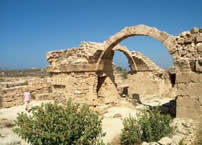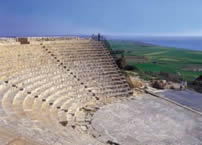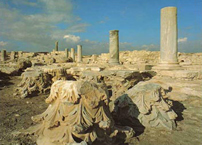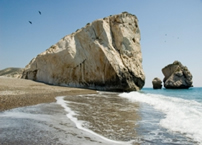





Cyprus Vacation | Culture and traditions | Coasts and Beaches
Cyprus is a small county, although it has a big cultural and historical heritage. Cyprus is the mythical birthplace of Aphrodite, Adonis and home to King Cinuras, Teucer and Pygmalion.
When the Romans came later they continued the worship of Aphrodite under the Roman name of Venus. They rebuilt the temple at Paphos and produced coins of the temple which were circulated round the Mediterranean Cyprus and Aphrodite amalgamated and Cyprus was called the "Island of Aphrodite."
The history of Cyprus dates as far back as 7000 BC, the Neolithic age, with settlements along the north and south coasts of the Island. From 750 BC Cyprus was conquered several times by Assyria, Egypt and Persia. In 333 BC Alexander the Great claimed Cyprus for part of his empire. Cyprus continued to be part of the Hellenist Empire until 58 BC. In 1571 Ottoman troops invaded the island and Cyprus became part of the Ottoman Empire. Islam was introduced to the island and Catholicism was expelled. The Greek Orthodox religion was restored. In 1878, under Cyprus Convention, Britan assumed administration of the island. In 1960 the island was granted indepence with Turkey, Greece and Britain. In 1974 Turkey occupied 38% of the island territory.
 |
 |
 |
 |
 |
 |
Cyprus is an island whose archaeology stems from the Neolithic Age, the Ancient Greeks and the Roman period; where churches and monasteries still stand from Byzantine times, castles and palaces from the days of Crusaders and Frankish Lusignans, and splendid city walls from Venetian days.Wherever you travel you will find ancient monuments and sites, churches and monasteries bearing silent witness to over 9,000 years of civilization and history.
Cyprus Vacation| Culture and Traditions | Coasts and Beaches